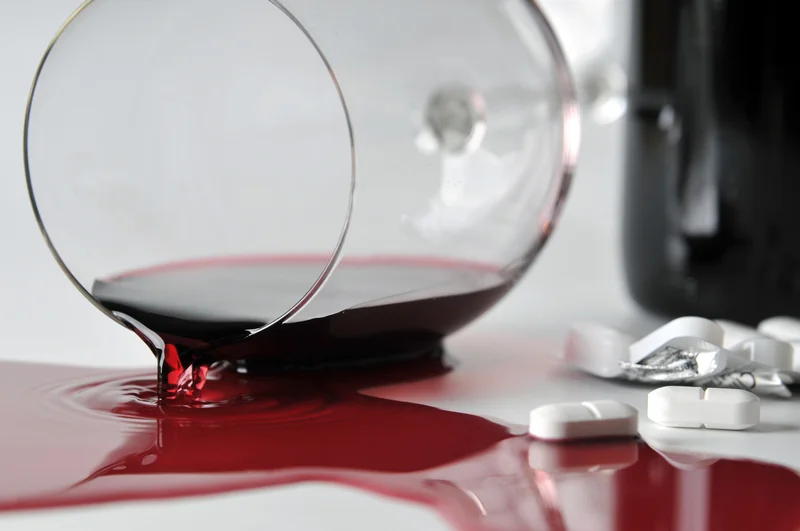
Don’t let the fear of alcohol withdrawal or any impediment from recovery from alcohol abuse get in your way. Our health professionals can treat your urge to drink and treat alcohol dependence at our substance use disorders treatment center. Our treatments for alcohol abuse include an individual treatment plan for alcohol misuse.

Addiction can happen to anyone
AAC offers a range of treatment centers across the U.S. so that you can work toward recovery in a setting that best fits your needs. We are also equipped to treat co-occurring disorders throughout our network of facilities via an integrated approach to treatment. If you or someone you care about is struggling with alcoholism and would like to learn more about treatment, American Addiction Centers (AAC) can help. Alcohol.org is a subsidiary of AAC, a nationwide provider of addiction treatment facilities. Understanding the available treatment options—from behavioral therapies and medications to mutual-support groups—is the first step.
Learn about Aliya Health Group’s Nationwide Addiction and Mental Health Treatment Network
- However, if you are looking for treatment elsewhere, SAMHSA has a tool available to find one closer to home.
- NIAAA cannot endorse any treatment providers nor be responsible for the options ultimately chosen.
- Find out what your out-of-pocket costs will be, including deductible and co-payment amounts.
- Open meetings encourage family members or loved ones to attend, while closed meetings are only for those in recovery themselves.
- Finally, graduates of outpatient rehab enter the aftercare stage, where they can remain as connected as they like.
If you feel like you’re highly at risk of withdrawal symptoms or struggle with a severe co-occurring disorder, inpatient services might be more beneficial. Residential treatment involves living at a treatment or rehab facility while undergoing treatment Twelve-step program during the day. These live-in facilities afford you stability and support as you learn relapse prevention strategies and get psychosocial treatments, such as group counseling or one-on-one sessions.

What Are the Stages Of Treatment?
- Counseling opens a line of communication during the good times, as well as the difficult times.
- Whether you need full-time support or just a structured path to sobriety, this guide will help you find a way forward.
- This includes those who may be battling severe alcohol withdrawal symptoms, or who may be struggling with a co-occurring metal health disorder such as depression or anxiety.
- Most AA meetings occur daily or weekly in a local setting, such as a church or community building.
- Contact your primary care provider, health insurance plan, local health department, or employee assistance program for information about specialty treatment.
This includes individual and group recovery programs https://ecosoberhouse.com/recovery-residence/ in a clinical setting. Clients return home at the end of each session and return for regularly scheduled appointments. Many choose to live in a sober living to facilitate better recovery from alcoholism.
Outpatient Addiction Treatment Programs
Specialized rehab programs target specific types of addiction or demographic needs, providing tailored support for individuals based on their unique circumstances. For instance, dual diagnosis treatment effectively addresses co-occurring mental health disorders alongside substance use disorders. Programs like the Matrix Model cater to stimulant abusers using comprehensive educational and therapeutic methods. Additionally, family therapy engages loved ones in the recovery process, fostering a supportive environment that is vital for long-term success. Inpatient treatment programs, also called residential treatment, offer structured programs designed to address all facets of an individual’s addiction. During inpatient treatment, patients reside in a substance-free facility and receive around-the-clock medical care and therapeutic support.

Dialectical behavioral therapy (DBT) is a form of CBT therapy that approaches intense or uncomfortable emotions and uses processes to help people manage them safely. For people with addictions to drugs like stimulants or cannabis, no medications are currently available to assist in treatment, so treatment consists of behavioral therapies. Treatment should be tailored to address each patient’s drug use patterns and drug-related medical, mental, and social problems. Medications are also available to help treat addiction to alcohol and nicotine. Relapse rates for drug use are similar to rates for other chronic medical illnesses. If people stop following their medical treatment plan, they are likely to relapse.
The Role of Therapy in Addiction Recovery Programs
Once you find some programs you’re interested in, be sure to visit Step 2 for questions to ask and answers to listen for. They help build strong habits while offering more independence than alcoholism treatment program and options inpatient care. It requires discipline and a solid support system, but it’s highly effective when done right.


